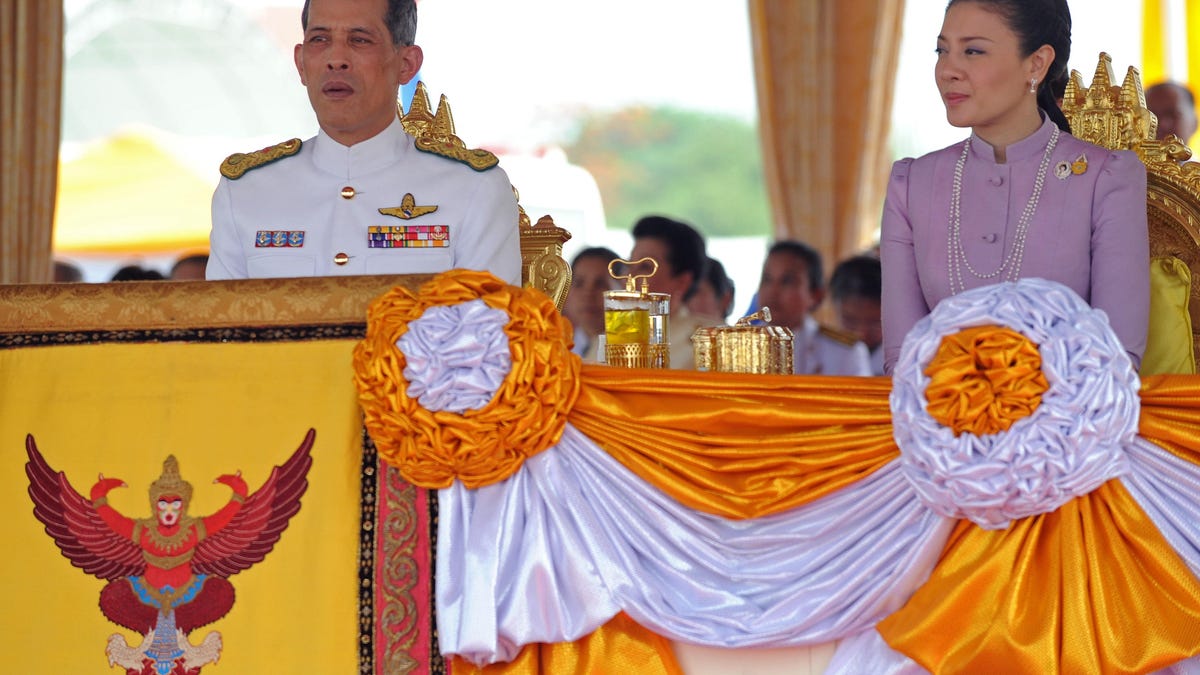Man gets 35 years in prison for dissing Thai royals on Facebook
It's one of the harshest sentences yet in a country where such criticism is illegal.

Thailand's King Maha Vajiralongkorn (left) at a ceremony in 2010.
If you want to avoid jail time in Thailand, don't talk trash about its royal family. Even on Facebook .
A military court in Bangkok sentenced a man to 35 years in prison on Friday for Facebook posts said to be insulting to the Thai royal family. Such speech is illegal under the country's lese-majesty laws, which insulate the family from criticism.
A watchdog group that tracks such cases called it the harshest sentence yet. "The court punished him with seven years per count. Altogether he was given 70 years, but it was reduced in half because he confessed," iLaw's Yingcheep Atchanont told The Guardian.
The man has been identified only by his first name, Wichai, in order to protect his family. He was said to have been using the Facebook account of a former friend in an attempt to slander him. Wichai initially denied the charges, according to iLaw, but later confessed.
The country's military, in power since 2014, has been criticized by the United Nations for using the law to stifle opposition.

